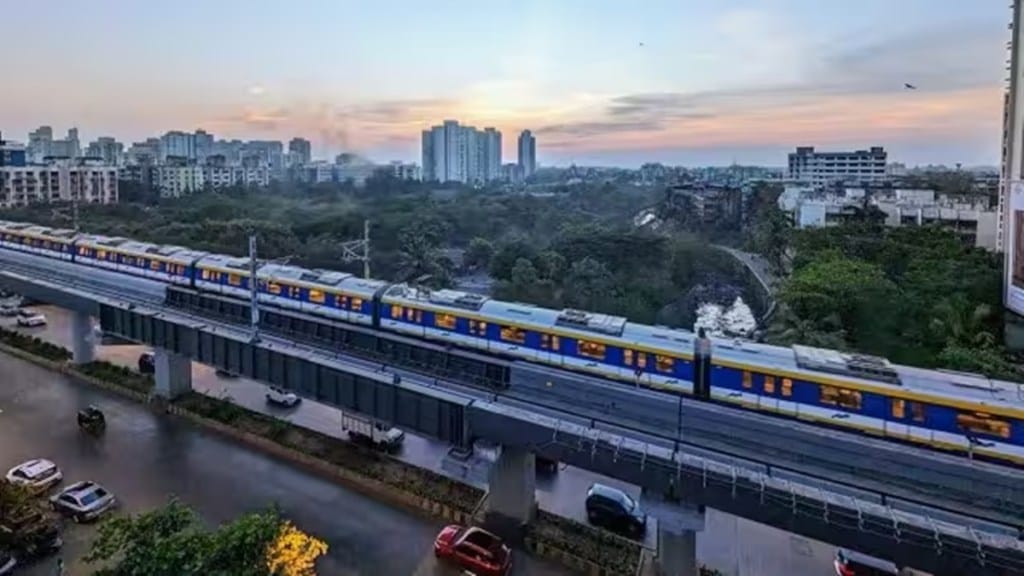The Mumbai Metropolitan Region Development Authority (MMRDA) is actively working to streamline the approval process of prototype metro train carriages for upcoming metro lines, with the goal of saving time.
Sanjay Mukherjee, the Commissioner of MMRDA, told The Indian Express that the experience gained from the successful operation of two Mumbai Metro lines (Line 2A and Line 7) from Andheri to Dahisar will significantly expedite the approval process for prototype metro train carriages for other upcoming lines. These metro train carriages must meet the standards set by the Research Design and Standards Organisation (RDSO) and the Commissioner of Metro Railway Safety (CMRS).
Mukherjee explained that as these regulatory agencies have already conducted inspections on operational lines 2A and 7, their feedback and observations can be invaluable in the manufacturing of train carriages for other metro lines. he said that this will result in a reduced inspection and approval timeline when these agencies assess the other lines, as many standard conditions will have already been met.
Since manufacturing of metro train carriages only commences after the prototype is approved, and this process typically takes at least a year, the MMRDA aims to save considerable time by streamlining these procedures. Contractors responsible for manufacturing metro train carriages will receive a checklist of criteria and feedback from certifying agencies based on their assessments of operational metro lines.
Mukherjee highlighted that considering the significant time already invested in the civil works for various elevated metro lines, MMRDA is dedicated to finding ways to optimize the system and reduce overall project timelines.
Currently, MMRDA is overseeing the construction of multiple metro corridors, including Line 2B, Line 4, Line 4A, Line 5, Line 6, Line 9, and Line 7A. Additionally, plans are in place for the construction of additional lines such as Line 10, Line 12, Line 13, and Line 14.
Refining Mumbai Metro administration
A noteworthy reform in metro administration is the appointment of dedicated team leaders for each metro line, aiming to streamline the coordination between civil and electrical works while clarifying responsibilities.
This strategic move, according to Mukherjee, is expected to facilitate the expedient execution of metro projects. In the past, a single official was tasked with monitoring all metro lines, which proved to be a complex and challenging endeavor.
